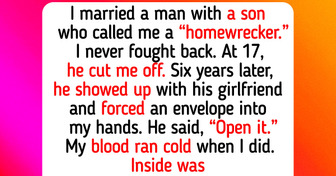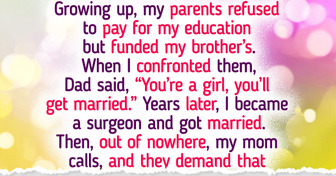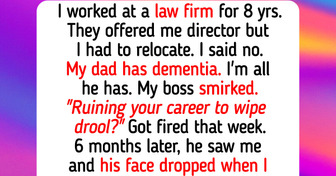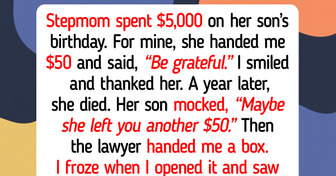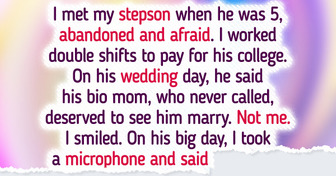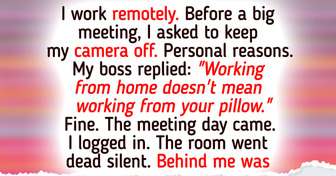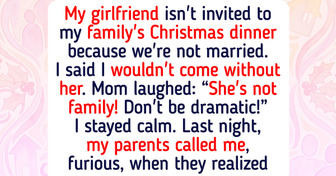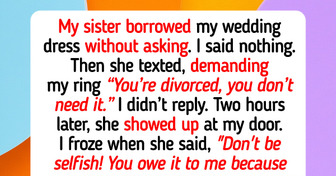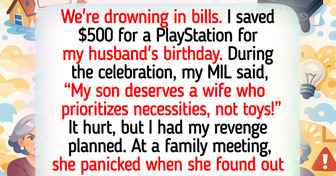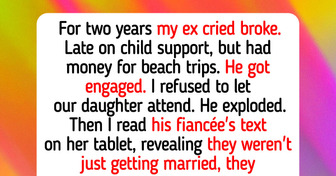My Stepdad Threw Me Out With Nothing—Now He Wants a Piece of My Fortune
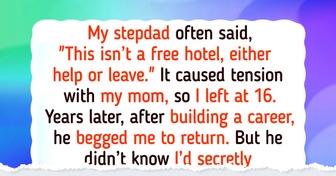
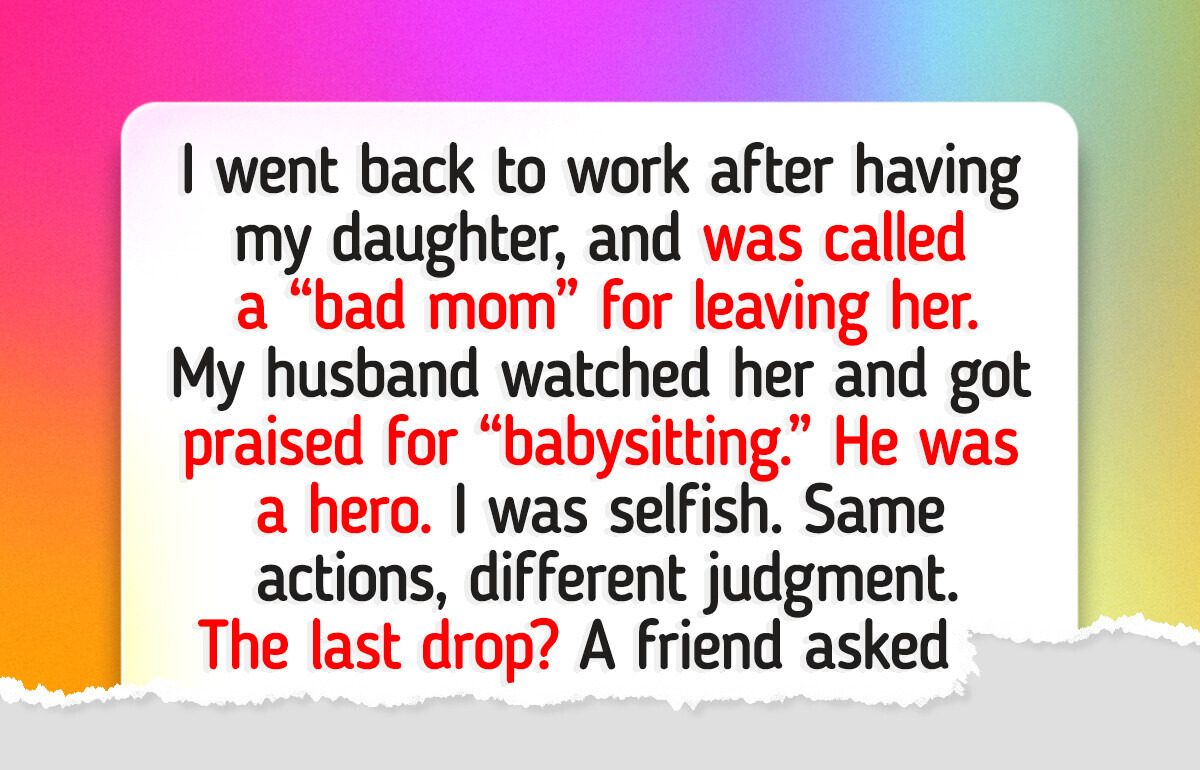
We often receive honest, emotional stories from our readers—and sometimes, they put into words what so many people feel but rarely say. This one hit a nerve.
It’s from a mother who returned to work just six weeks after giving birth—not out of ambition, but out of necessity. What followed wasn’t just sleepless nights and childcare juggling—but a heavy dose of judgment.
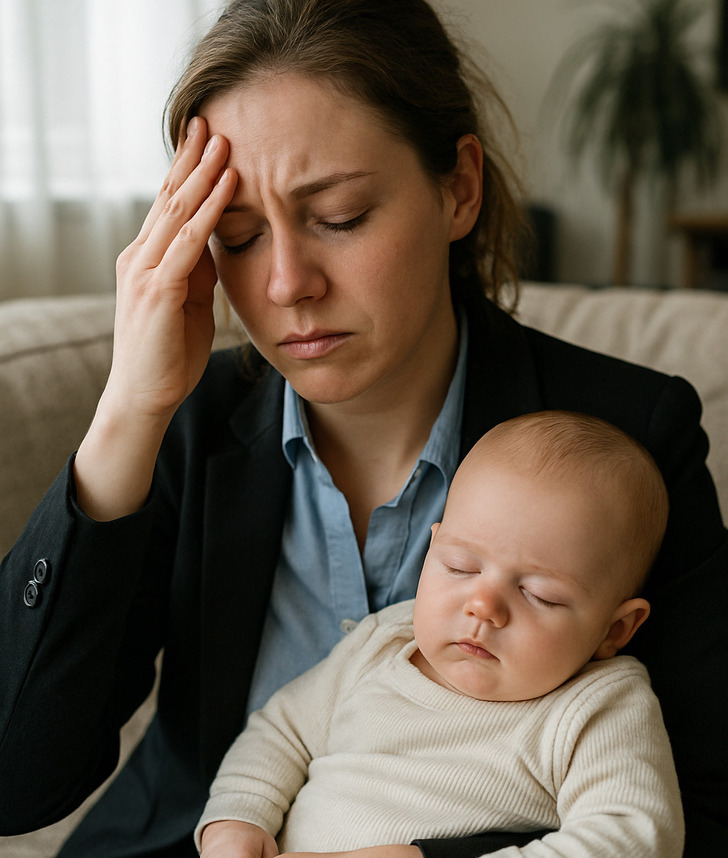
I returned to work six weeks after giving birth. Not because I wanted to prove anything—but because I had to. I love my child deeply. I also love my job. The guilt started before I even got back to the office.
One coworker raised her eyebrows and said, “Wow, so soon?”
A neighbor asked, “Who’s watching the baby?”
My favorite?
“You’re lucky your husband helps.”
My husband is a great partner. He changed diapers, rocked our daughter to sleep, and took turns on late-night feeds. He was doing what any parent should do.
But every time he took her to the grocery store or daycare drop-off, people would fawn over him. “You’re such a hands-on dad!” “Wow, it’s great to see a father so involved!” He once got free coffee for “giving mom a break.”
Meanwhile, I missed one PTA meeting and got side-eyed. Showed up at a conference and someone joked, “Didn’t know moms were allowed to travel.”
The last drop of my patience? A friend looked me in the eye and asked, “Do you ever worry she’ll feel closer to your husband than to you?”
Here’s the part no one says out loud:
When a man leaves his kids to work, he’s a provider.
When a woman does the same, she’s selfish.
When a man parents, it’s celebrated.
When a woman works to grow, it’s judged.
What they called “babysitting” was actually parenting. What they called me—a "bad mom"—was actually a working professional doing what she had to do for her family and herself.
The truth is, I wasn’t a bad mom. I was a present one. A tired one. A stretched-thin one. But never absent.
And my husband? He wasn’t a hero. He was a dad doing his part—quietly, like I was, but with a round of applause I never got.
Thank you for your letter!

We know parenting is never a one-size-fits-all journey. But what happens when moms and dads experience it in completely different ways—especially in how they’re perceived and supported?
A major study by the Pew Research Center took a closer look at how mothers and fathers in the U.S. approach parenting, what they worry about, and how much of the invisible load they carry. The results are revealing—and familiar to many.
Moms are more stressed, more tired, and more judged.
While most parents say raising kids is rewarding, 47% of moms say it’s tiring all or most of the time—compared to just 34% of dads. Moms are also more likely to say they feel judged for how they parent, especially by friends, in-laws, and even strangers online.
Dads are praised for "helping"—moms are expected to do it all.
Fathers are more likely to say they split parenting duties equally. But most moms disagree, especially when it comes to emotional care, schedules, schoolwork, and daily needs.
And when dads take the lead? They’re often celebrated. When moms do? It’s seen as normal—or not enough.
Worry comes with the job—but mostly for women.
From anxiety and bullying to physical safety and future success, mothers worry more across the board. This is especially true for Hispanic mothers, who report the highest levels of concern across multiple issues.
Parenting style? Still shaped by gender.
Moms are more likely to say they’re overprotective or give in too quickly. Dads are more likely to say they offer too much freedom or discipline more. But both agree: parenting today is harder than they expected—especially when the load feels uneven.
Parenting matters deeply to both, but differently.
For 35% of moms, being a parent is the most important part of their identity (vs. 24% of dads). And while both want their kids to grow up ethical, ambitious, and hardworking, moms are more likely to emphasize empathy and acceptance, while dads place slightly more value on milestones like marriage or having children.
The more we recognize the different challenges parents face, the better we can shape a world where both moms and dads feel seen, supported, and valued.
10+ Mistakes Every Parent Should Avoid for Their Child’s Financial Future

